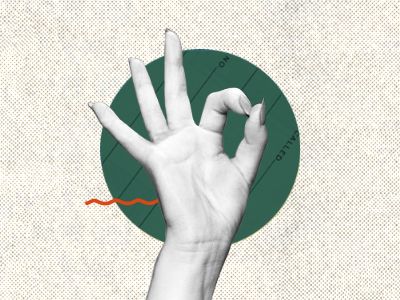This is a guest post by Jawaria Kashif, Advocate High Court Lahore. You can get in touch with her on email here, and her Facebook page here.

As part of a dedicated cause, Jawaria Kashif, Advocate High Court Lahore, brings up yet another useful article on the rights of women and child to their maintenance by a husband and father (respectively). This write up discusses this very important issue in the light of Islamic as well as Pakistani law.
Maintenance of the wife and children is not strictly followed by a large population of men in our society. The basic reason for this is the lack of awareness of the matter as well as not knowing how much stress Islam has imposed on the man regarding this. More often than not, we see a man will neglect the basic needs of his wife especially if she herself is financially independent, or a man would stop providing for his children from her if she remarries or separates after a divorce.
Ms Jawaria will discuss all such issues on this topic in an informative, yet easy to understand manner. She also advises what to do in case the wife or child is not getting their due right in the light of Pakistani law.

Jawaria Kashif, Advocate High Court, Lahore
What Is Maintenance:
The word maintenance has not been defined in the Family Court Act, therefore we have to look at the dictionary meaning. Varies dictionaries defined it as under:
Black’s Law Dictionary:
The Black’s Law dictionary defines maintenance as financial support given by one person to another which is paid as a result of legal separation or divorce. Maintenance may end after specified time, upon the death, or remarriage of the receiving party.
Chambers Dictionary:
According to the Chambers dictionary, “maintenance” is money paid by one person to support another, as ordered by a court of law. e.g. money paid to an ex-wife and/or children following a divorce.
Maintenance under the Muslim law:
Maintenance under Muslim law is known as “Nafqah” or “Naan O’ Nafqah” which means what a man spends over his family. “Nafqah” basically includes food, clothing and lodging.
Muslim Wife is Entitlement to “Nafqah” Even If She Is Wealthy:
A Muslim husband is bound to maintain his wife under Muslim law. Her right to maintenance is absolute, as per Islam. The Holy Qur’an says:
“The women have almost the same rights over men as men have certain rights over the women in kindness”. – Quran
The Holy Prophet (P.B.U.H) has said: “The best among you are those who behave well with their women.” The following versus of the Holy Quran gave rise to the rights and obligations of maintenance:
“Let the man of means spend according to his means: and the man whose resources are restricted, let him spend according to what Allah has given him. Allah puts no burden on any person beyond what He has given him. After a difficulty, Allah will soon grant relief”. [Al-Talaaq 65:7]
The above verse from the Quran clearly states that the amount of maintenance will depend upon social status of the parties and economic conditions of the husband. So the opposite party should refrain from putting undue burden on the man.
Maintenance of Children and Grandchildren:

Family Maintenance rights; Source: huffe.com
A father is bound to maintain his sons until they have attend the age of puberty. He is also bound to maintain his daughters until they have married. But he is not bound to maintain adult sons unless they are disabled and infirmity or disease.
Maintenance of children is basically the responsibility of a father and it is his duty to provide all monetary and economic needs of the child. Even after his ex-wife is married to another person, it is solely the biological father’s duty to bear all expenses of his child. This includes expenses for upbringing, education and for other related facilities.
In the light of the above, it is quite evident that to maintain his child is obligatory on the biological father and his responsibilities cannot be absolved merely on the basis that the mother is an earning hand or has remarried.
Grounds on which maintenance can be denied:
A wife is not entitled to maintenance if;
- She has not attained puberty yet according to the law.
- She abandons conjugal domicile without any valid cause
- She is disobedient to reasonable commands of her husband
- She has eloped with somebody
Entitlements to the Muslim wife after a divorce:
Under Muslim Women (Protection of Rights on Divorce) Act, 1986 a divorced Muslim woman is entitled to the following from her former husband;
- Reasonable provision and maintenance within the Iddat period.
- Where children born before or after the divorce are being maintained by the wife, then reasonable and fair provision and maintenance to be paid for 2 years from the respective dates of birth of such children.
- An amount equal to Mahr or dower agreed to be paid to her.
- All properties given to her before or at the time of marriage or after marriage by her relatives, friends or husband or any relative of husband or his friends.
What To Do If Wife Is Not Provided Her Entitlements:
A suit for maintenance of wife/wives and children (if any) can be filed in court.
(i) If husband fails to maintain his wife adequately, or where there are more wives than one, fails to maintain them equally, the wife, or all or any of the wives, may file a suit for recovery of maintenance amount under West Pakistan Family Court, Act 1964 against her husband.
(ii) As per Pakistani and Islamic law, it is the duty of the biological father to provide for maintenance of his child. In the event of divorce or separation, it is likely that fathers discontinue maintenance of their children. In such circumstances, the mother of the child can apply to the court to have the father pay for the child’s necessary expenses and needs. Maintenance orders are passed within delay and the amount is collected strictly as a collection of revenue or tax.
You might also like:

[adinserter block="1"]




